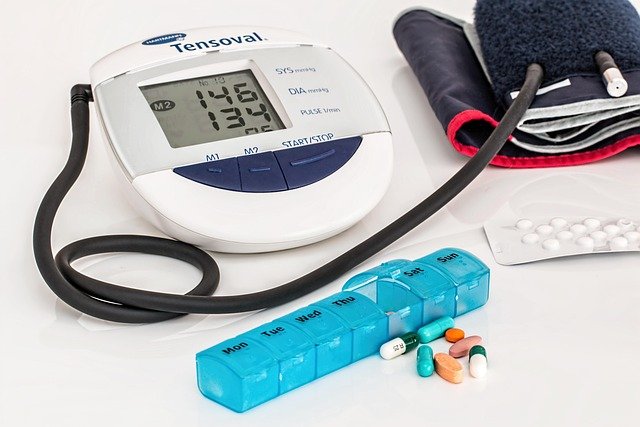Understanding High Blood Pressure: Causes, Prevention, and Management
High blood pressure, also known as hypertension, is a common health condition that affects millions of people worldwide. This article will explore the intricacies of high blood pressure, including what blood pressure readings mean, risk factors, lifestyle changes that can help reduce blood pressure, when medication may be necessary, and the potential complications of untreated hypertension. By understanding these aspects, you can take proactive steps to maintain healthy blood pressure levels and reduce your risk of associated health problems.

What do blood pressure readings mean?
Blood pressure readings consist of two numbers: systolic pressure (the force exerted on artery walls when the heart beats) and diastolic pressure (the force when the heart is at rest between beats). These readings are typically expressed as systolic over diastolic, such as 120/80 mmHg. Understanding these numbers is crucial for interpreting your blood pressure status:
-
Normal: Less than 120/80 mmHg
-
Elevated: 120-129/less than 80 mmHg
-
Stage 1 Hypertension: 130-139/80-89 mmHg
-
Stage 2 Hypertension: 140/90 mmHg or higher
Regular monitoring of blood pressure can help detect early signs of hypertension and allow for timely intervention.
What are the risk factors for high blood pressure?
Several factors can increase your likelihood of developing high blood pressure:
-
Age: The risk of hypertension increases as you get older.
-
Family history: Genetic factors can play a role in blood pressure regulation.
-
Obesity: Excess weight puts additional strain on your heart and blood vessels.
-
Sedentary lifestyle: Lack of physical activity is associated with higher blood pressure.
-
High-sodium diet: Consuming too much salt can lead to fluid retention and increased blood pressure.
-
Excessive alcohol consumption: Regular, heavy drinking can raise blood pressure over time.
-
Smoking: Tobacco use damages blood vessels and can contribute to hypertension.
-
Chronic stress: Prolonged stress can lead to temporary spikes in blood pressure and unhealthy coping behaviors.
-
Certain medical conditions: Diabetes, kidney disease, and sleep apnea can increase the risk of hypertension.
Understanding these risk factors can help you identify areas where lifestyle changes may be beneficial.
What lifestyle changes can reduce blood pressure?
Adopting healthy habits can significantly impact your blood pressure levels:
-
Maintain a healthy weight: Losing excess pounds can lower blood pressure and reduce strain on your heart.
-
Exercise regularly: Aim for at least 150 minutes of moderate-intensity aerobic activity per week.
-
Eat a balanced diet: Focus on fruits, vegetables, whole grains, lean proteins, and low-fat dairy products.
-
Reduce sodium intake: Limit salt consumption to less than 2,300 mg per day (or less if recommended by your doctor).
-
Limit alcohol consumption: If you drink, do so in moderation (up to one drink per day for women, two for men).
-
Quit smoking: Stopping tobacco use can improve your overall cardiovascular health.
-
Manage stress: Practice relaxation techniques such as deep breathing, meditation, or yoga.
-
Monitor your blood pressure at home: Regular self-checks can help you track your progress and identify concerns early.
Implementing these lifestyle changes can often lead to significant improvements in blood pressure control.
When is medication necessary for high blood pressure?
While lifestyle modifications are the first line of defense against hypertension, medication may be necessary in certain situations:
-
Persistent high readings: If blood pressure remains elevated despite lifestyle changes.
-
Stage 2 hypertension: Medication is typically recommended alongside lifestyle modifications.
-
Underlying health conditions: Certain medical issues may require immediate medication.
-
High cardiovascular risk: Individuals with multiple risk factors may benefit from early medication intervention.
-
Pregnancy-related hypertension: Medication may be necessary to protect both mother and baby.
Your healthcare provider will consider your overall health, risk factors, and blood pressure readings to determine if medication is appropriate. It’s important to follow your doctor’s recommendations and continue lifestyle changes even if medication is prescribed.
What are the complications of untreated hypertension?
Uncontrolled high blood pressure can lead to severe health problems:
-
Heart disease: Increased risk of heart attack, heart failure, and irregular heartbeats.
-
Stroke: Hypertension is a leading cause of stroke.
-
Kidney damage: High blood pressure can impair kidney function over time.
-
Vision problems: Damage to blood vessels in the eyes can lead to vision loss.
-
Cognitive decline: Hypertension is associated with an increased risk of dementia and cognitive impairment.
-
Peripheral artery disease: Narrowed arteries can reduce blood flow to the limbs.
-
Sexual dysfunction: High blood pressure can affect sexual performance in both men and women.
These potential complications underscore the importance of proper blood pressure management through lifestyle changes and, when necessary, medication.
In conclusion, understanding high blood pressure is crucial for maintaining overall health and preventing serious complications. By recognizing what blood pressure readings mean, identifying personal risk factors, implementing lifestyle changes, seeking medical advice when needed, and being aware of potential complications, you can take control of your blood pressure and reduce your risk of associated health problems. Regular check-ups and open communication with your healthcare provider are essential components of effective blood pressure management.
This article is for informational purposes only and should not be considered medical advice. Please consult a qualified healthcare professional for personalized guidance and treatment.




